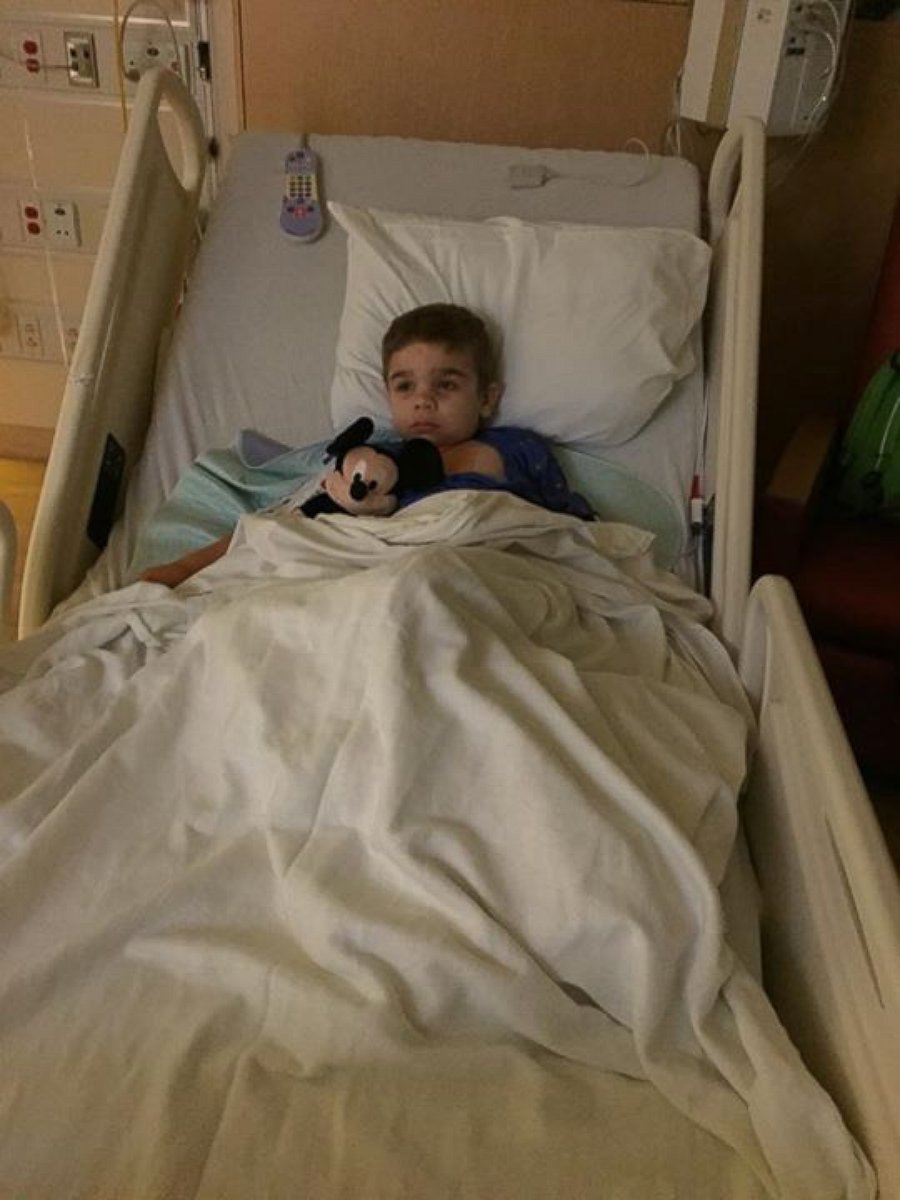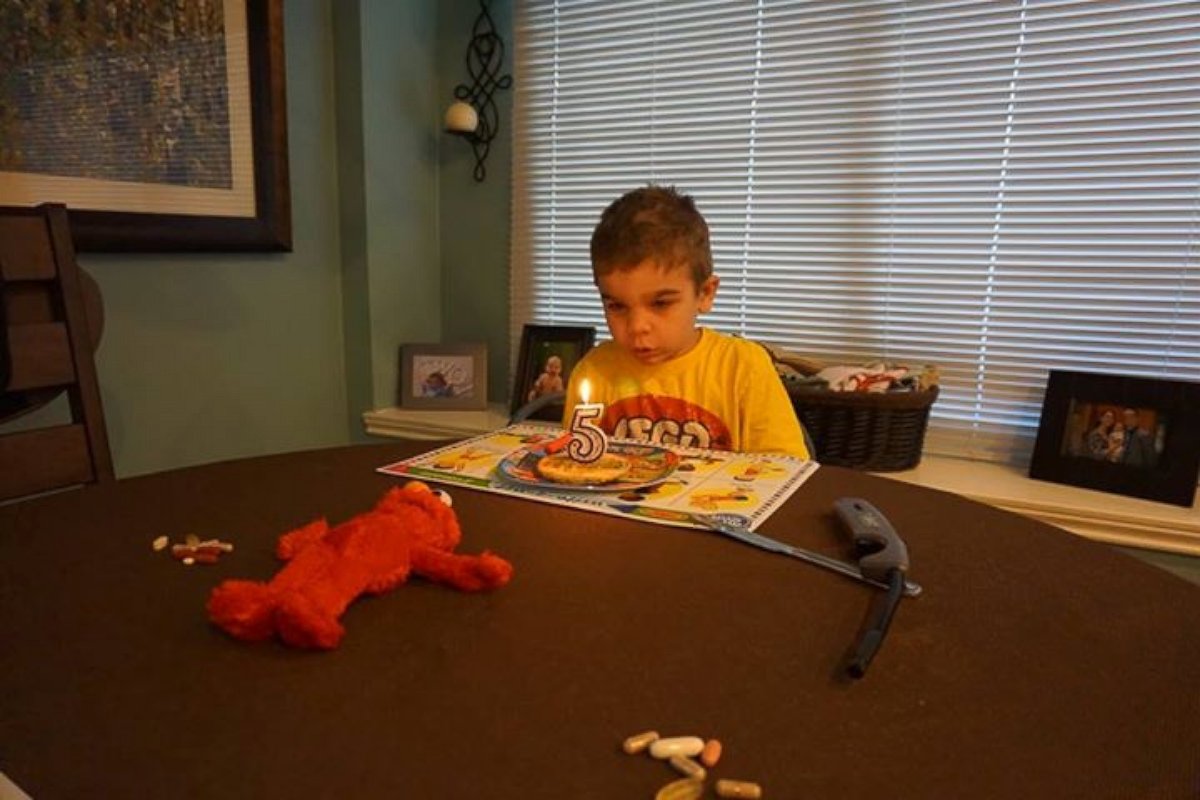Family Realizes Boy Has Rare Disease After Seeing Girl's Poignant Video
Will Bayers was diagnosed with Sanfilippo disease earlier this year.
— -- When her son was 4, Valerie Tharp Byers was left with the feeling that something was deeply wrong with his health. Doctors had initially told Tharp Byers that Will, a boy who loves Mickey Mouse and grilled cheese, was on the autism spectrum, but she said she and her husband felt like there was something else going on that lead to his developmental delays.
Earlier this year Tharp Byers, of Spring, Texas, came across a video called “Saving Eliza” about a girl with a rare condition called Sanfilippo syndrome. The metabolic disorder does now allow the body to break down certain sugar molecules which can lead to dangerous buildup of heparin sulfate, which naturally occurs in cells. This buildup renders cells unable to function properly and can affect everything from sleep to speech to movement.
There is no treatment for Sanfilippo, which is terminal.
Tharp Byers said after seeing Eliza’s video she instantly suspected that Will had the same rare condition.
"As I read [the article] and watched the video, I saw Will," she told ABC News. Through genetic testing the family was able to determine that Will, 4, had Sanfilippo Type B. That type of the disease is so rare it appears in only 1 out of every 200,000 births, said Tharp Byers.
"Honestly I saw that and immediately started sobbing," Tharp Byers said of seeing the video and realizing her son might have the condition. "It takes your breath away. You don’t want to get out of bed in the morning."

Rather than give up, Tharp Byers and her husband sprang into action. They immediately contacted the family of Eliza O’Neill. The now 5-year-old girl's parents had started a foundation called Cure Sanfilippo Foundation to raise funds for treatments and medical research.
“A lot of research is on the cusp,” Eliza’s father, Glenn O’Neill told ABC News. O’Neill, the president and founder of the Cure Sanfilippo Foundation, explained experimental treatments are the only hope for children already born with the condition.
“Our ultimate goal is to get newborn screening and have funding to find a cure [or treatment,]” he said.
The O’Neill family have a constant reminder of what the treatment can mean in seeing how the condition has affected Eliza, who has Type A Sanfilippo. She now has started to lose some speech, according to her dad. For 390 days the entire family have remained in isolation to protect Eliza from getting a virus that would make her ineligible for an upcoming gene therapy trial.

Tharp Byers credits the O’Neill family with helping them get Will properly diagnosed him. Because Will has type B, his symptoms would have been slightly delayed and Tharp Byers said it’s likely they would not have known what was wrong for another six months to a year.
After talking to doctors and other families with the condition, Tharp Byers and her husband found out about a new drug trial that would aim to treat Will’s condition. Just nine patients were slated to take part in the study and the family was able to get Will into the last slot.
While there is no guarantee for a cure, Tharp Byers said it’s miraculous that her son will have a chance at getting treatment so soon.
“It felt like there was a guiding hand behind this,” she said. “It’s truly miraculous finding out and getting into clinical trial with month and a half.”
Tharp Byers said by sharing her story she hopes other to help other families who may not realize their children have the disease. Aside from the clinical trial she said knowing Will’s proper condition means that they can give him certain therapies to help him progress before the build up of cell byproducts start to affect him.
Today the family is planning to celebrate the boy's fifth birthday with a trip to his favorite restaurant and a fundraiser, balancing Will's needs as a normal Lego-loving boy and his medical needs.
“We feel so many emotions in a given hour let alone today,” Tharp Byers said. “We realize it’s a blessing for us to know.”
The family said they were also waiting to see if their younger daughter is afflicted or a carrier for the disease. They said that they are cautiously optimistic since early tests showed that likely did not have disorder.
"It’s terrible to know but it’s important to know so you can start taking steps," Tharp Byers said of learning Will's diagnosis. "Time is too precious."




